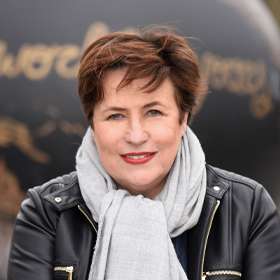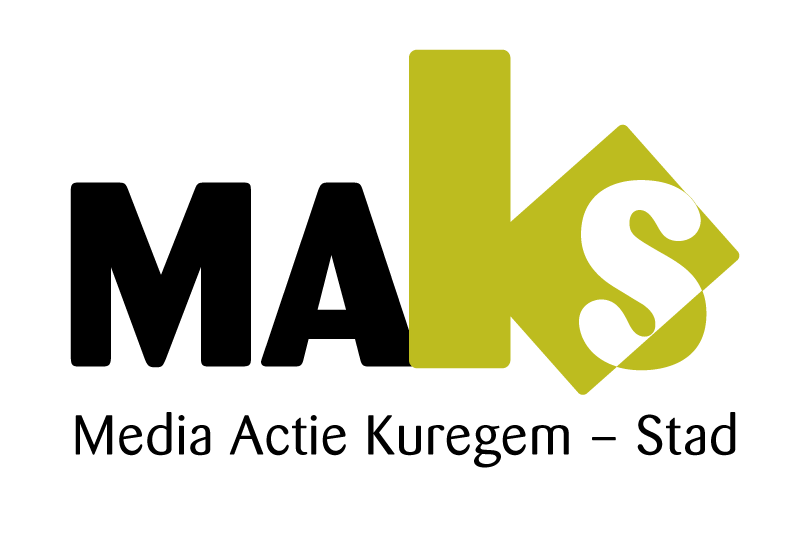Passion for people and organisation

Maks asbl bets on growth and expands its support services
Guiding more young people and adults towards higher digital literacy, allowing even more talent to develop in Cureghem and Old Molenbeek, putting even more initiatives like the Digibib on track and developing them further; these are the ambitions for the next few years.
What drove you to join MAKS?
Quite simply: the mission. I am very aware that I come from a rather privileged part of the society and I want to use the knowledge and talents I have been able to develop to helping the mission of Maks vzw. I am very keen on ‘the digital’ – I worked in IT for many years – and I am a strong believer that digital literacy can make a big difference. Making the access to that digital world easier for everyone is a really democratising process. The size of the organisation and where it stood in terms of development were other attractive factors. I had held similar positions in the past at two different, smaller NPOs in Brussels. So it seemed that my entire professional career path had prepared me perfectly for this challenge (laughs).
What struck you immediately?
A new job is always a bit of a leap in the dark, despite all the conversations you may have had beforehand. What became immediately clear is that there is more need for structure within the organisation. Maks vzw has the perfect size to make a bigger impact with a few minor adjustments without facing too many organisational challenges. In their early days, NPOs are driven very hard by passion and commitment. This is usually more than enough to keep everything running smoothly in the background. But there is always a moment when that is no longer enough. Because the size of the NPO requires other procedures and the professionalising and formalising of those processes. So it’s a very normal evolution, and that’s exactly what makes me very happy.
Can you give an example ?
After a few weeks of observing and listening to the front desk team, I worked with them to digitise part of their operation at the reception in a simple way. We centralised all registrations in one system to get a better view of our target audience and avoid errors by transferring data between different systems. The best thing there was not the result itself but the fact that the team was given plenty of growth opportunities. Now watching them carry the project forward and professionalise it is not only rewarding, it is above all very valuable. A win for the organisation, for the team and for our course participants and target audience. At Maks vzw, we also provide a permanent framework for some 30 insertion jobs, which provides a number of interesting challenges in terms of training and guidance, while at the same time, of course, we want to achieve our mission. It is an interesting balancing act.
Your role is fairly broad, what is your experience of it?
I am in charge of all support services, indeed. So these are services that are never on the front line of fire but ensure that others can do their jobs in the best possible way. The broader the responsibilities, the more holistic of an approach we can achieve. The more solid the solutions, the higher the impact. When all these support services fall under the same umbrella, it is easier to see and be able to initiate possible intersections. Support services are seen as not adding value, I see it very differently: it is about providing the most efficient resources to our employees so that we can achieve our social goal and grow without too many ‘growing pains’.
Can you make that concrete?
Take Samuel, who heads the youth operation. I consider it my responsibility that he has enough space so that he can concentrate on his core tasks. This can already be done, for example, by ensuring a solid and clear recruitment and selection process. This then involves onboarding new employees, providing resources to train those people but also ensuring that we help him submit subsidy dossiers and that the financial statements are delivered neatly on time and error-free afterwards. The ambition for 2022 is to give all project managers insight into their budgets and operating resources at all times, which is quite a challenge when you know that we have an average of 20 ongoing project divisions, each with their own way of reporting…
When we meet in the next year, where will you have gotten the most fulfilment from?
In my view, success will look like this if people from all levels of our organisation see me as a facilitator, one who can make things happen – as long as they contribute to our mission of course (laughs). I want to see our human resources led by solid and trained team leaders so that we can meet the next challenges as an organisation. This is about empowering those employees, making sure they have undergone the right training, mastered the basics of project management, are able to coach their team well and think solution-oriented. And I also think it is important to further automate our accounting. A thorough analytical accounting system will add more value to financial policies and better support decision making.
A plateful!
Maybe, but I see it like an onion: you start with the most visible, the outer layers first, and you can go deeper and deeper. Step by step, towards a well-run and even healthier organisation.
The ambition for 2022 is to have full visibility of the resources already deployed for each project as well as the remaining budget at any time.
